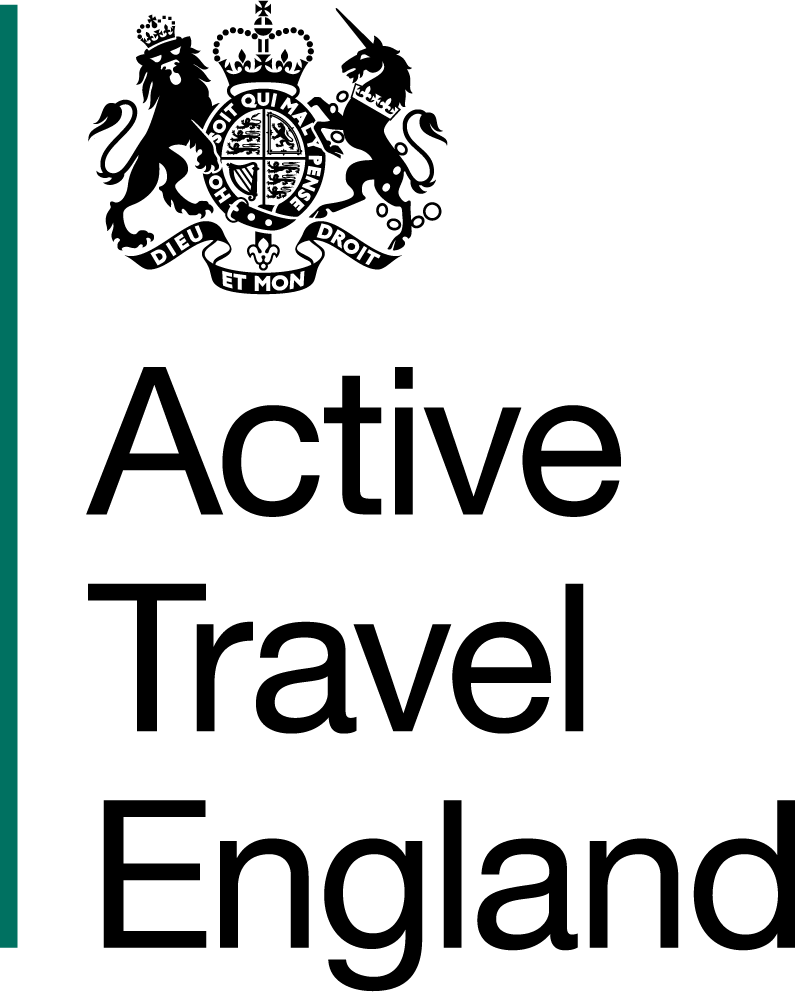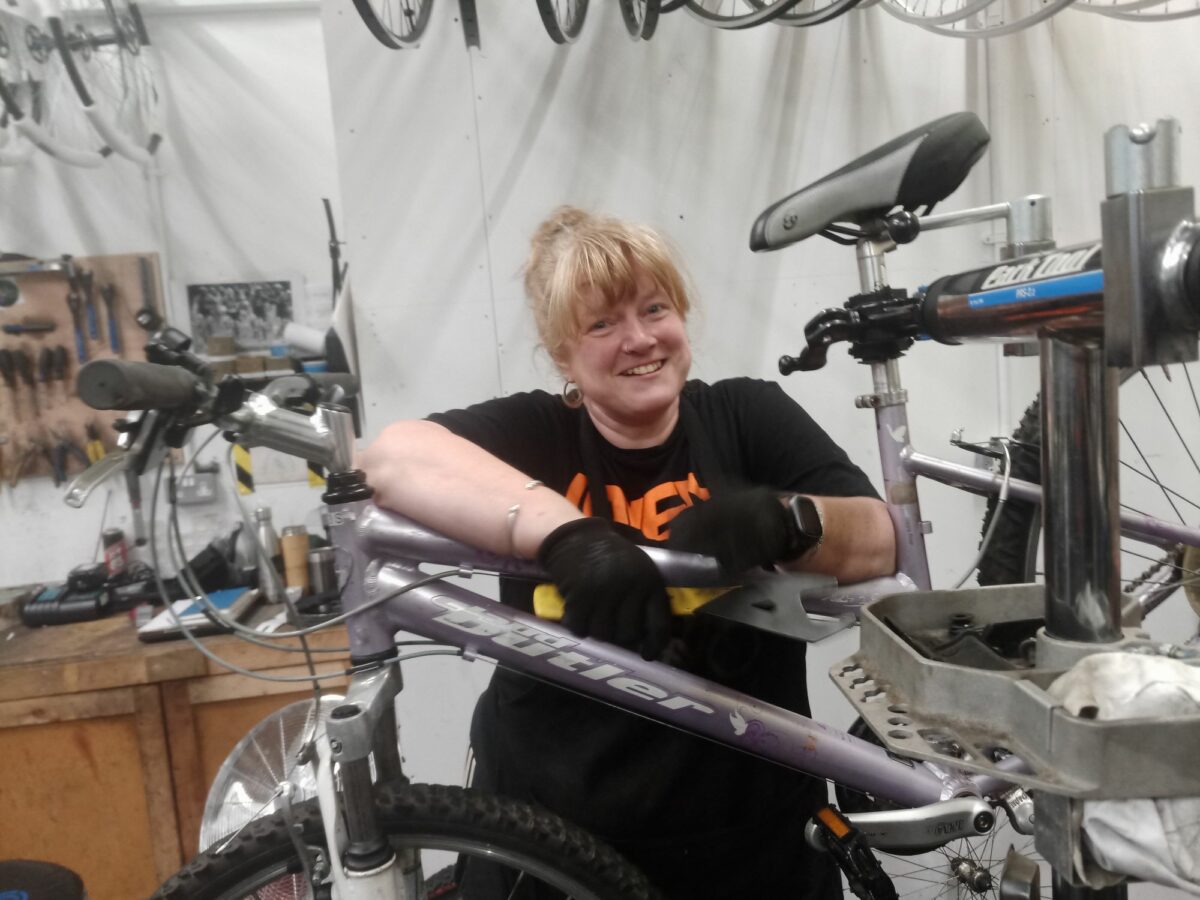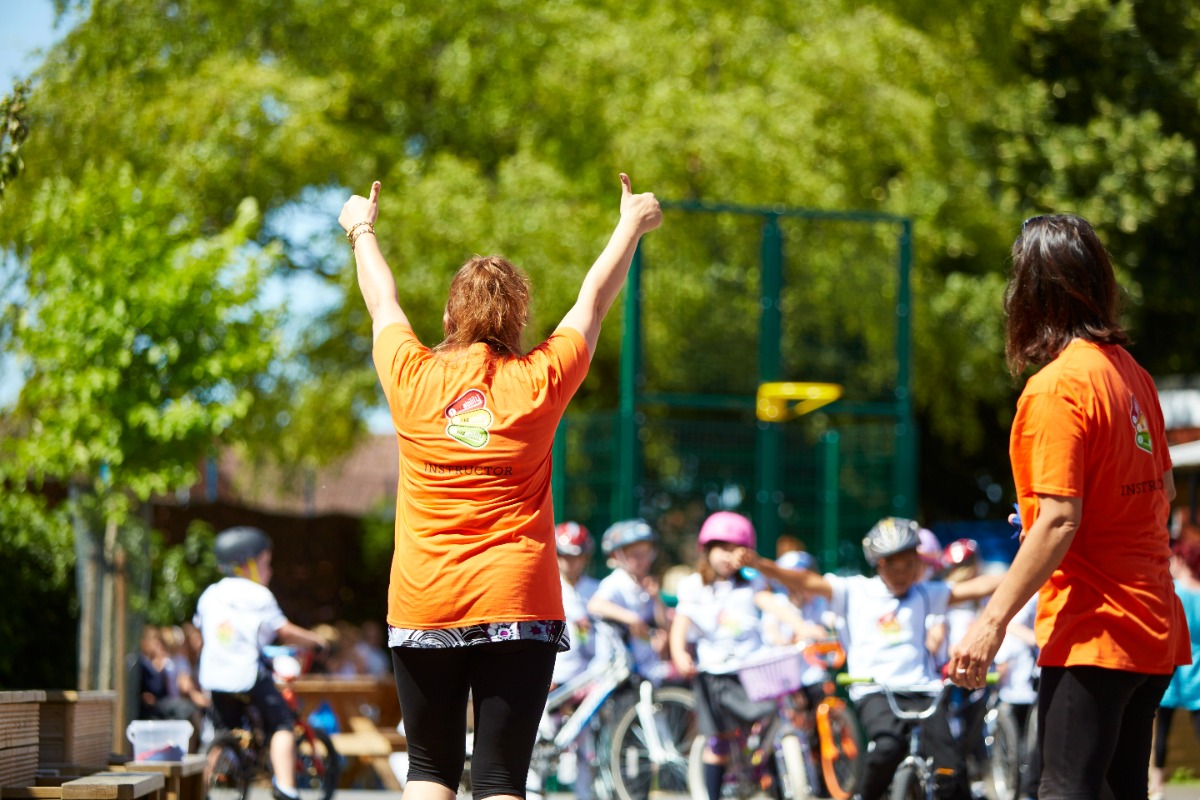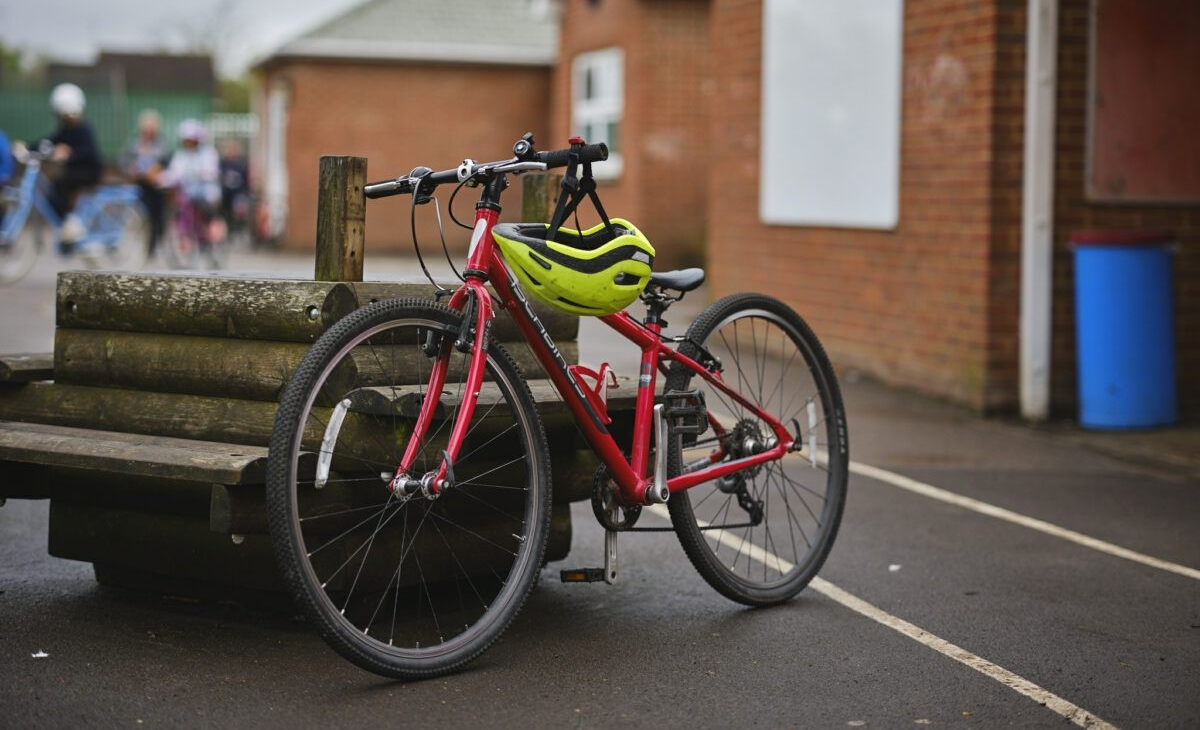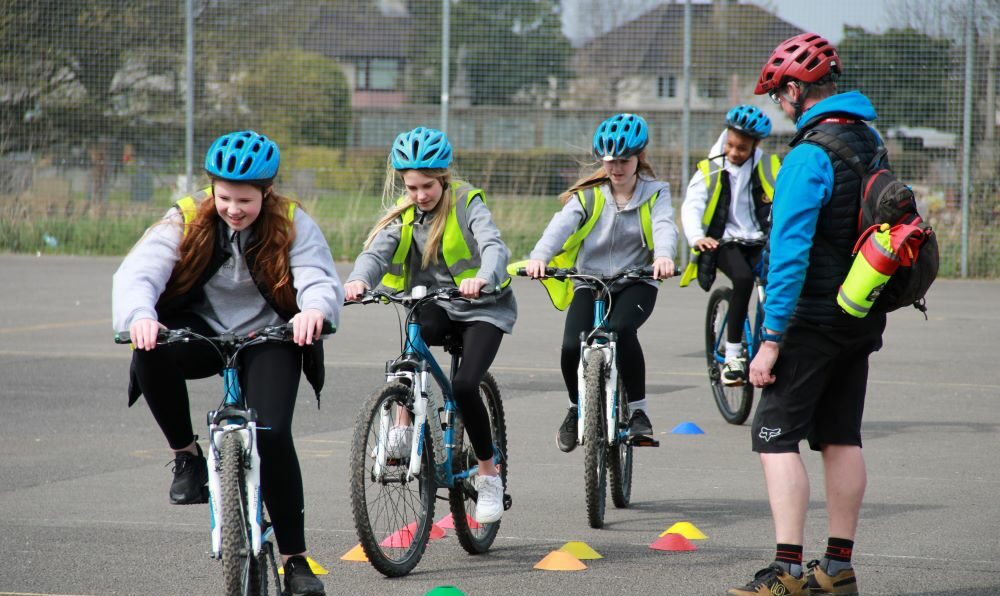Cath, who was been named as one of Cycling UK’s 100 women in cycling in 2023, has empowered countless women to get cycling over the four and a half years she has been working for the charity.
Cycling as transport
The Bike Project is a charity project based in London and Birmingham that refurbishes donated cycles and gives them to refugees so they have access to affordable, sustainable transport.
“Public transport is expensive – £4 for a day isn’t a lot but it is if you’re only on £45 a week,” Cath told us. “It’s a massive, massive thing, especially when people have got to go to various offices maybe every day, maybe twice a day, you know, it’s a huge chunk of their income. So actually, people said having a bike means they don’t have to worry about travel costs, so they can buy food or they can buy shoes, you know, it’s that basic.”
Being able to share cycling with people, especially women, is important to Cath. She first learned to cycle as a child, and was taught by her Dad, who was a keen cyclist. “He worked in Coventry and cycled to work every day. He always mended bikes and he taught me how to ride bikes. I don’t drive – I’ve never driven, so I’ve always cycles to get around,” Cath told us.
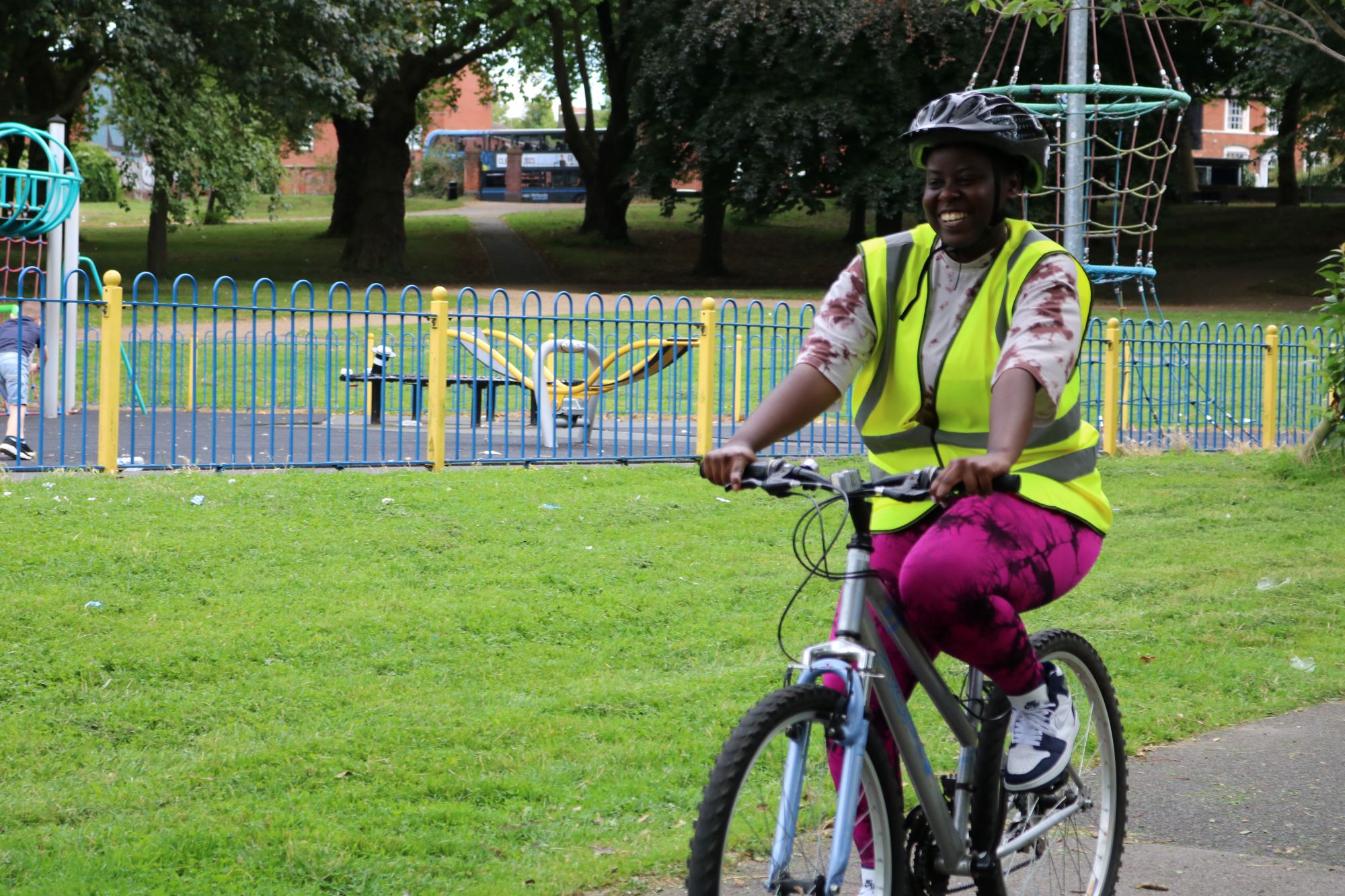

“People said having a bike means they don’t have to worry about travel costs, so they can buy food or they can buy shoes, you know, it’s that basic.”
Cycling for life
Cycling as a child led Cath to cycle touring, and eventually a job working teaching English as a second language (TESL) in Hungary. “My idea was I was going to do some work, then cycle, do some work then cycle, but in the end I absolutely loved the teaching. So I stayed in Hungary for years.”
After moving back to the UK, Cath went into teaching but didn’t enjoy it – she left after 6 years, with no idea of what she was going to do instead.
“I was just on Facebook, and saw this advert for the Bike Project. And it was bizarre. Just before I left teaching, a really good friend asked me what would you really love to do? I said, I really want to be a bike mechanic. But I can’t because I’m too old and it costs too much to learn. And the Bike Project job was for someone to train up to be a bike mechanic. I had a bit of bike knowledge, but the idea is I retrained as I worked here, so I went for it. I’ve been here ever since.”
The Pedal Power project
The Bike Project, which launched in London before branching out to Birmingham, had been giving away refurbished cycles but quickly found that lots of people, especially women, couldn’t actually cycle. So while the need for affordable transport was there, just giving the women a cycle wasn’t going to provide the solution. This is where their project, Pedal Power, came into it.
“A lot of work was done to look into why women weren’t cycling as much,” Cath explained. “So the cycle training that we do is just for women. It’s for anyone over the age of 18, who’s a woman and has had a bike from us, and they can have up to eight free lessons. We work very much on the Bikeability model of cycle training, but it’s never really as quick as it is in when it’s taught in schools. There’s a lot of people that can’t pedal at all.”
It can be challenging to learn how to cycle as an adult, partly because the fear of falling off is very real!
“It’s easier to learn something for kids. There’s no fear when they fall off – they just get back up again. Whereas if I fall off it really hurts! And a lot of the women that we work with have never been on bikes. And yet it’s an odd thing to do as an adult, I think.”
Helping women learn to cycle has made an impact already. “We found in London that the number of women bike recipients went up alongside the cycle training project. So when it came to Birmingham, it was just part of the package.”
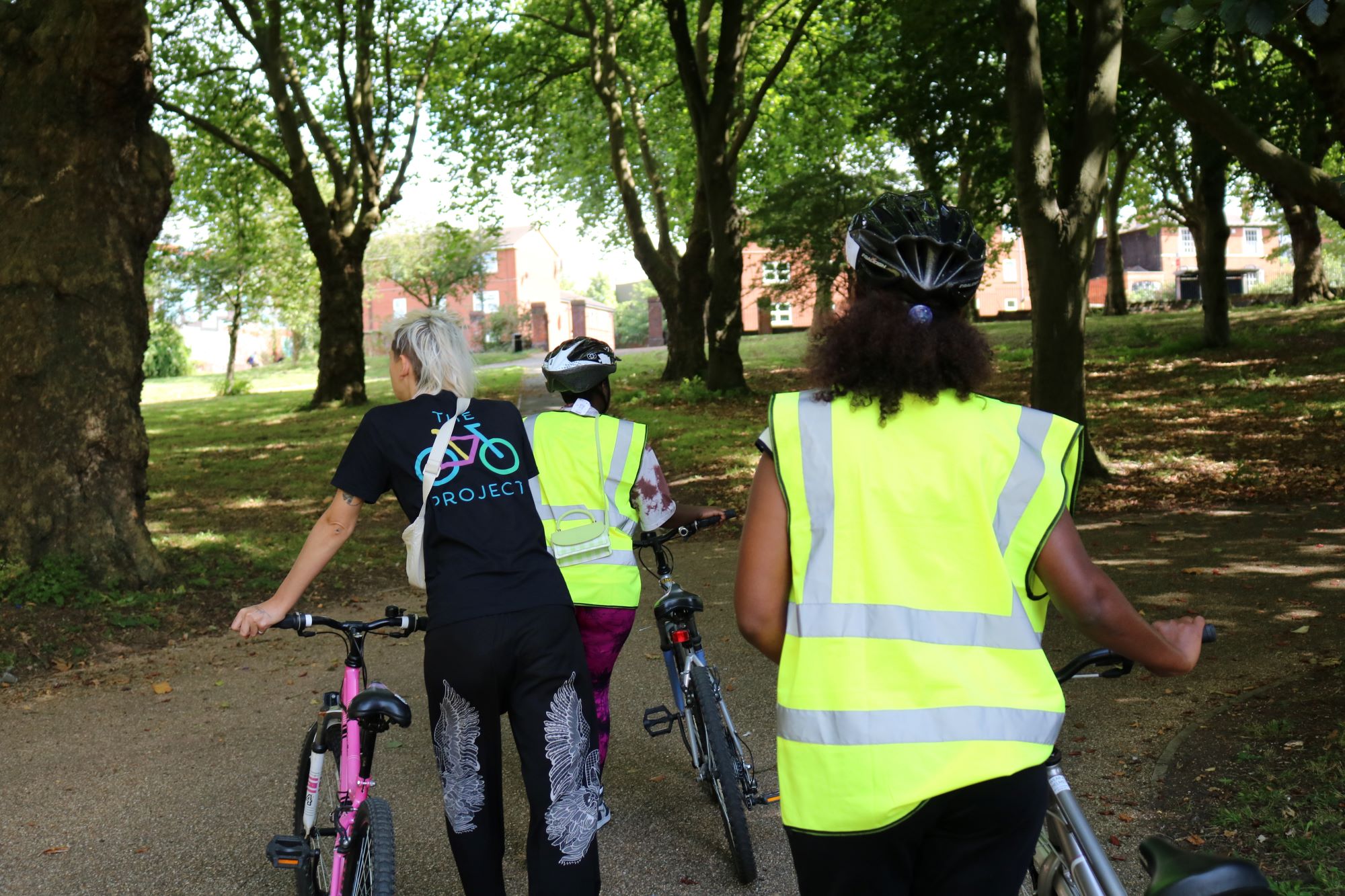

“We found in London that the number of women bike recipients went up alongside the cycle training project.”
Empowering women to cycle
There are other barriers that stop lots of people cycling, and safety is a big aspect, especially for women.
“I’ve always cycled and I’ve cycled all over the world, and I’ve never really felt unsafe. But people have told me they don’t feel safe. And it’s things like cycling through the park at night when it’s not lit. It could just be a perception of danger, but it’s still there. I would choose cycle over walking, because I feel safe on my bike, but I still cycle a lot quicker at night than in the daytime.” Cath said.
“In England, it’s seen as a hobby or a sport. It’s not seen as transport. As much as I’d love it to be equal it isn’t – like with childcare, it’s mainly Mum that will take kids to school. And so it’s never a viable option. It’s not seen as a thing is because it’s not seen as a normal way to transport people.”
There is also the fact that many people find the idea of cycling on the road daunting, as Cath agreed. “You know, people don’t want to cycle because it’s not seen as safe and as much as I want to say you’re allowed your space on the road, which you absolutely are, but I cycle around here and I’ve been shouted out, I’ve had cars driven at me, and I’m quite a confident cyclist. If you’re new to cycling, of course it’s gonna put you off. And what’s really annoying is the best way to get safer cycling is to have more people cycling. So how’d you get to that point, when there are so many barriers in your way?”
Breaking down the barriers
The Bike Project are doing what they can to break down some of the barriers facing female refugees so they can cycle happily and safely, giving them a skill and a way to move around the city. All the work they have been doing is paying off – and they have lots of success stories of women who have not only learnt to cycle but also made valuable connections with their community.
“Originally when I started in Birmingham, people just stayed as long as they wanted and we had this first lovely group who didn’t want to leave because they were really enjoying it.” Cath said. Some of them enjoyed so much they wanted to help others learn to cycle.
“One woman, she was actually the first woman to graduate [from Pedal Power] in Birmingham, she has been volunteering for us on and off ever since she came, so we devised our own system so she can be an assistant instructor.” Cath told us. “She’s really good at helping people learn to ride and I think because she’s been through it a lot more recently than we have and as an adult.”
This is one of the aims of the project – to eventually train people to become cycle instructors so they can share their knowledge and help their community cycle. It’s a long term aim though, as becoming a confident cyclist who can help people learn to cycle on the road can take time, as Cath explained.
“You have to be realistic, and you have to look at the barriers that people have for that. It’s making sure that we’re not just sort of stepping in and of dragging people along with it, because actually it’s supposed to be that we’re empowering people. I think hopefully with this assistant instructor pipeline we can work towards getting people to become instructors.”
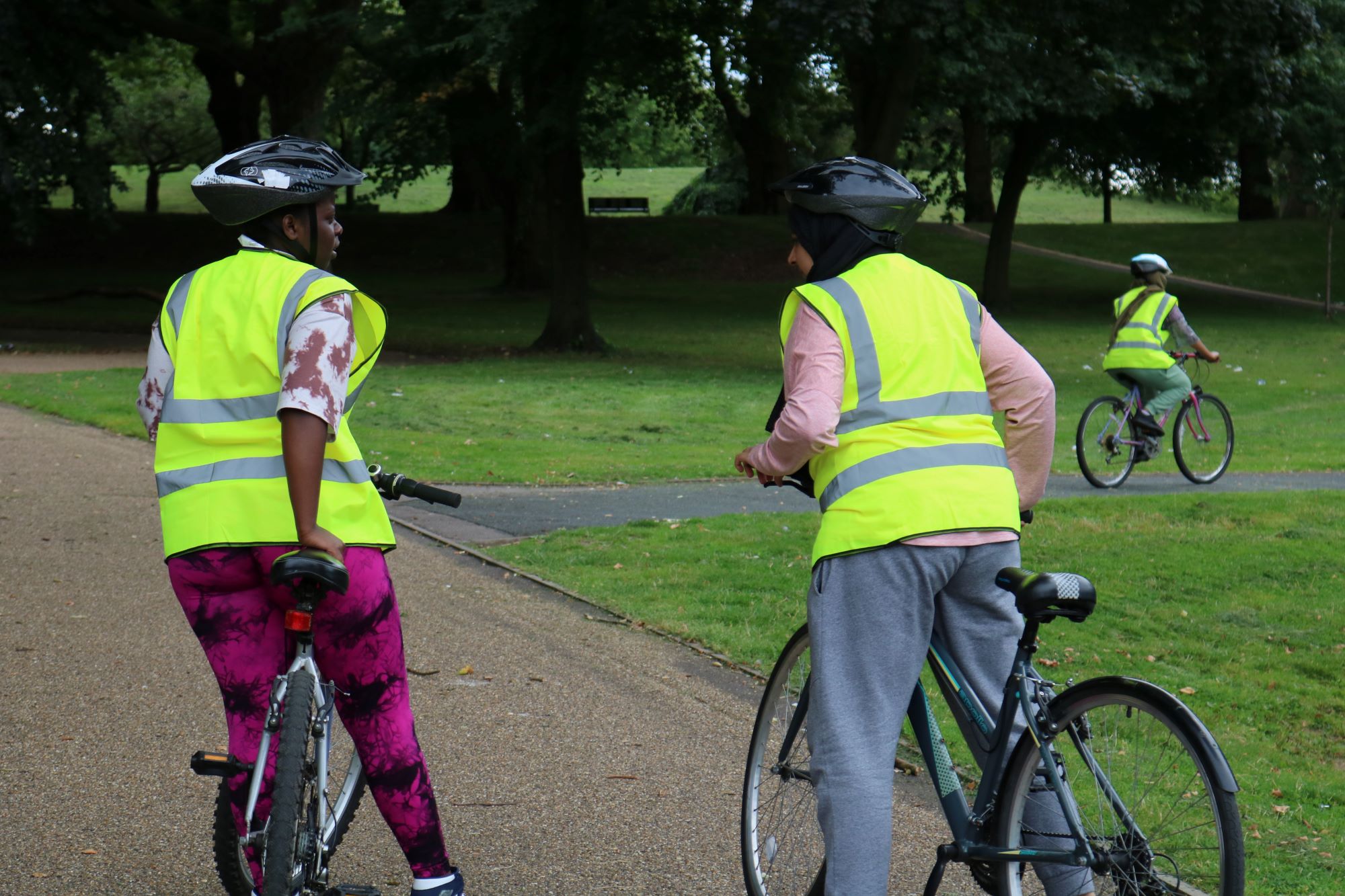

“One woman […] has been volunteering for us on and off ever since she came, so we devised our own system so she can be an assistant instructor.”
Learning to cycle as an adult
Finally we asked Cath for her top tips for people who might want to learn to cycle, especially as adults.
“I do think training is amazing. If you can get trained do that. If you can’t, I would go to the park, maybe take a friend who’s going to be encouraging. And accept you will fall off. It happens to everyone! And then try cycling on quiet roads.
“Another barrier I think is embarrassment. As a kid, it’s absolutely fine to sit on your bike and just scoot along. That’s the best way to learn to balance, so if you get a bike, lower your saddle to the lowest position and walk with it. Just sit on it and walk alongside it, almost like a hobby horse. And then once you get used to that, put your saddle up a little bit and keep on raising it. That’s how we teach people. We take pedals off, we take the whole crank off – we make them adult balance bikes!”
Find out more about The Bike Project, including how you can donate a cycle and other ways to help.
